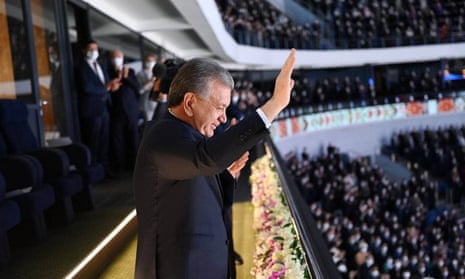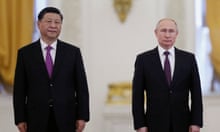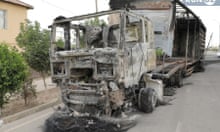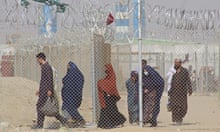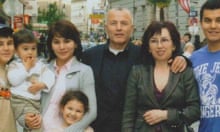Uzbekistan’s LGBTQ+ community says it is facing increasing threats and repression after anti-LGBTQ+ protests turned violent and new laws were passed this week banning the publication of content deemed to show disrespect for society and the state.
Human rights groups say that the legislation, passed on Tuesday, will prevent media or online commentators arguing for the decriminalisation of sexual conduct between men, which is illegal and punishable by up to three years in prison. Uzbekistan – along with Turkmenistan – are the only post-Soviet states that prohibit sexual relations between men.
Anti-LGBTQ+ violence erupted in Tashkent, Uzbekistan’s capital, last weekend after heated social media debate around calls to reform the penal code on homosexuality. Two teenagers were badly injured in the clashes.
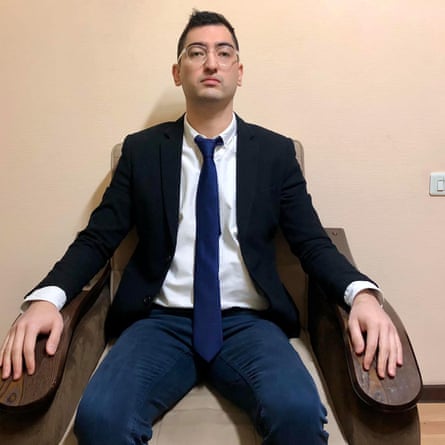
Miraziz Bazarov, a popular blogger and critic of Uzbek conservative values who actively supported LGBTQ+ rights, was also beaten by a group of masked men and hospitalised. Three days later, his house was searched by the security services and documents and a computer confiscated.
Members of the LGBTQ+ community in Uzbekistan, speaking to the Guardian on condition of anonymity, say that the protests and the publication of the photos, names and addresses of LGBTQ+ people on social media, along with calls for violence, have left them fearing for their lives.
“Fear has appeared in my life. I am afraid of dying here and there is nowhere to escape. These days, many of us are staying home out of fear,” said Shukhrat – not his real name – a 20-year-old gay man.
“We only want freedom and peace but it’s all got worse. Panic attacks, depression and a recurring thought that something can happen to me have returned. I don’t want to live like this.”
Another man said that many in his community were scared that the violence would escalate in the coming weeks.
“I now feel even more vulnerable,” he said. “Before, we were only afraid of the law, now we’re also afraid of the radicals, and the government is officially on their side.”
Q&AWhat is the Rights and Freedom series?
Show
A year on from the start of the world’s biggest health crisis, we now face a human rights pandemic. Covid-19 has exposed the inequalities and fragilities of health and political systems and allowed authoritarian regimes to impose drastic curbs on rights and freedoms, using the virus as a pretext for restricting free speech and stifling dissent.
Rights and Freedom is a new Guardian reporting series to investigate and expose human rights abuses at this critical time, and elevate the voices of people on the frontlines, fighting back for themselves and their communities.
Under President Shavkat Mirziyoyev, the past four years have seen Uzbekistan move towards a more politically progressive agenda, yet this has not extended to the country’s LGBTQ+ population.
The government has recently proposed to amend the country’s criminal code to change the charge against homosexuality from “sodomy” to a crime against family, morality and children.
“LGBT people in Uzbekistan were already vulnerable to harassment, threats, abuse and violence, even before the events on Sunday, given the criminalisation of consensual same-sex conduct and widespread homophobia,” said Mihra Rittmann, senior central Asia researcher at Human Rights Watch.
“Now, with increasing hostility toward an already vulnerable group, and outward displays of intolerance and violence, it’s critical that Uzbekistan’s leadership unequivocally condemn such violence, and for authorities to hold perpetrators accountable.”
Conservative bloggers have said that the increasing visibility of LGBTQ+ activists, and campaigns for the rights of sexual minorities, were eroding conservative values.
“Our youth is being raised in the spirit of conservatism and respect for traditions,” said Abu Muslim, an Islamic blogger. “Our society sees it as an attack against Uzbek religious values. It will never be accepted.”
